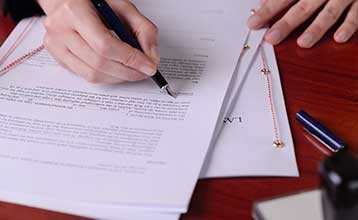Inheriting a Housing and Development Board (HDB) flat can be complicated and confusing. Many factors influence the process. Two important factors are whether the deceased had a valid will and whether the HDB flat has other owners. It could also make a difference if you already own property or another HDB flat.
Another scenario to consider is when you are the co-owner of an HDB flat, and the other owner passes away. You need to understand HDB inheritance rules and the implications on your ownership to organise and protect your affairs.
Eligibility conditions for proposed flat owners
The following is an extract from the HDB website and contains the latest eligibility conditions as at May 2023.
These are the eligibility criteria that proposed flat owners must meet before taking over ownership of an HDB flat. Proposed owners must physically occupy the flat upon the ownership change. The application for a change in flat ownership (not through a sale) is subject to HDB’s approval based on the prevailing eligibility conditions.
| Reason for Change in Flat Ownership | There is a change in the existing family structure (such as divorce, marriage or demise of an owner), or the current owners need to perform an ownership change to retain the flat. |
| Relationship | The proposed owners must be an immediate family member of the current owners, such as the spouse, parents, children, or siblings. |
| Eligibility Scheme | The proposed owners (both remaining and incoming) and occupiers staying in the flat must be able to take over ownership of the flat under 1 of the existing eligibility schemes. |
| Age | The proposed owners must be at least 21 years old. |
| Citizenship | The proposed owners can either be a Singapore Citizen (SC) or a Singapore Permanent Resident (SPR), with another owner or occupier who is an SC or SPR. If all the proposed owners are SPRs, they and the essential occupiers must have held permanent residency for at least 3 years. |
| Ownership in Another HDB Flat, or DBSS flat/ EC Unit^ | The proposed owners must not be a current owner or essential occupier of: - An HDB flat - A DBSS flat, or an Executive Condominium (EC) unit (within its 5-year Minimum Occupation Period) bought from a developer |
| Ownership in Private Property | Owners of private property or owners who have disposed of a private property within the last 15 months may take over the ownership of an HDB flat if they meet the following: The existing flat owner has fulfilled the requisite occupation period At least 1 of the proposed owners is a Singapore Citizen All proposed owners and listed occupiers must continue to live in the flat upon the change in flat ownership Note: Private properties include but are not limited to local or overseas private properties (flat, house, building, land), HUDC flats, and Executive Condominiums. If you have acquired private property by gift, or inherited private property as beneficiaries under a Will or as a result of the Intestate Succession Act, or owned, acquired, or disposed of a private property through nominees regardless of the property’s location, you would be deemed as having acquired interest in the private property. |
| Debarment | The proposed owner must not: - Have infringed any HDB/ government rules, regulation or policies - Be debarred by HDB for the infringement |
This article will discuss inheritance law around HDB flats and answer some of your questions. Bear in mind that government policies may change and it is always best to refer to HDB’s website for the latest policies.
Religion and HDB inheritance
Religion may affect the inheritance of HDB flats. The laws vary for Muslims and non-Muslims.
If the deceased is Muslim and there is no will, the flat will be dealt with under Syariah Law Faraid.
If there is a will, the owner can only bequeath 1/3rd of the property. The court will distribute the remaining 2/3rd of the interest in the flat, according to Faraid.
If the owner is non-Muslim and there is no will, the ownership of the HDB flat will be dealt with under the Intestate Succession Act. The Act defines how HDB ownership is dealt with without a will. A relative or a beneficiary can approach the court to be appointed as the trustee to oversee the process.
If there is a will, the will must be proved and executed under probate. The appointed trustee or executor will oversee the process following the Probate and Administration Act.
Types of Ownership and HDB Inheritance
It might be easier to refer to specific scenarios to explain how types of ownership affect HDB Inheritance. Please note that this is always subject to HDB’s prevailing conditions for taking over ownership of a HDB flat.
Sole Ownership
If you are a non-Muslim sole owner of the flat and have no will, the flat will be sold and the proceeds divided between your spouse and your children. Your spouse will get 50%, and the remaining 50% will be divided equally among your children.
If you have no surviving spouse or surviving parents but have children, they will inherit the flat in equal portions.
If you are not married and have no children, but your parents are still alive, they will inherit the flat in equal portions.
If you are single with no living family, the flat will go back to the government.
The situation can be more complicated if the flat is co-owned. There are two types of co-ownership. First, it is essential to establish if the flat is owned under a joint tenancy or tenancy-in-common.
Joint tenancy
A joint tenancy means all the co-owners have an equal share in the flat. If one of the co-owners passes away, their interest is automatically passed to the remaining eligible owners. The co-owner must be a Singapore citizen or a permanent resident, and at least 21 years old to be eligible.
It does not matter if the deceased had a will or not. A joint tenancy will override the will.
Tenancy-in-common
Under a tenancy-in-common, each owner has a separate interest in the HDB flat.
If one of the owners passes away, their share of the ownership is transferred based on inheritance laws. It will not automatically transfer to the remaining owners.
If there is a will, it will be distributed to the beneficiaries as set out in the will. If there is no will, the provisions of the Intestate Succession Act will apply to the deceased’s share in the ownership. Please note that this is always subject to the prevailing conditions set by HDB.
The process of HDB inheritance
There are several issues to consider when one of the owners of an HDB flat passes away. This is just a brief overview of the process. The beneficiaries should engage a lawyer as soon as possible to ensure compliance with all the inheritance processes.
If a joint tenancy owner passes away, the remaining owner must lodge a Notice of Death with the Singapore Land Authority (SLA). This can be done with the help of the Housing and Development Board or directly at the SLA. When lodging the Notice of Death, the remaining owner must include all the required documents, including the Death Certificate. The Notice of Death must comply with all the legal requirements. It must be typed, printed, and witnessed by a witness at least 21 years old.
If the deceased owned the property under a tenancy-in-common, the deceased’s family should approach a lawyer to obtain a Grant of Probate.
If the deceased died without a will, a lawyer must apply to the court for a Grant of Letters of Administration. After obtaining the legal authority from the court to manage the estate, the executor or administrator must register their legal right to do so.
The application must include original copies of the Grant of Letters of Administration or the Grant of Probate, as well as the will.
The original Syariah Court Inheritance Certificate must be included in the application process for Muslim estates.
After complying with all the requirements, the interest in the HDB flat can be transferred to the new owners.
What if the beneficiary already owns private property?
Owners of private property or owners who have disposed of a private property within the last 15 months may take over the ownership of an HDB flat if they meet the following:
- The existing flat owner has fulfilled the requisite occupation period
-
At least 1 of the proposed owners is a Singapore Citizen
-
All proposed owners and listed occupiers must continue to live in the flat upon the change in flat ownership.
What if the beneficiary already owns an HDB flat?
The proposed owners must not be a current owner or essential occupier of:
- An HDB flat
- A DBSS flat, or an Executive Condominium (EC) unit (within its 5-year Minimum Occupation Period) bought from a developer.
What can go wrong?
If everything relating to HDB ownership is done according to the letter of the law, the inheritance process should proceed without too many significant issues. However, many families have informal arrangements about who pays the mortgage. Sometimes the owner on paper is not the one paying the mortgage.
Beneficial ownership of the flat might be very different to the name on paper. In some inheritance situations, the one paying the mortgage might have to prove payments to protect their interest in the property. Proving payment could be easy if you used your CPF to pay the mortgage but using other forms of income might be tricky.
Ong Chai Koon and others v Ong Chai Soon [2021] SGHC is an excellent example of how complicated HDB ownership amongst siblings can be. Although the case did not specifically deal with inheritance, it shows how difficult it can be to prove who paid the mortgage.
Inheritance may cause a lot of conflict amongst surviving family members or co-owners. If you have specific wishes about the inheritance of your HDB flat, it is essential to draw up a will stipulating your wishes. Without a valid will, your interest in your HDB flat might end up with a person who is not your first choice.
If you own an HDB flat, you should consult with HDB and a lawyer who is knowledgeable about inheritance law to explain HDB inheritance to you.
Fixed, clear & transparent fees
Grant of Probate
From $1,390
Letter of Administration


